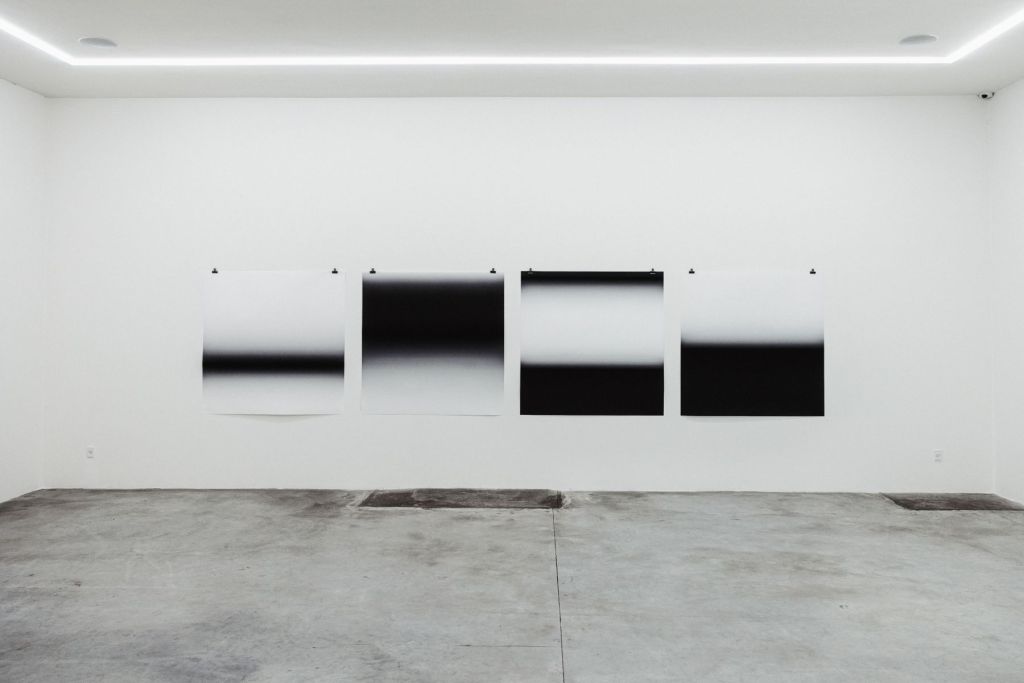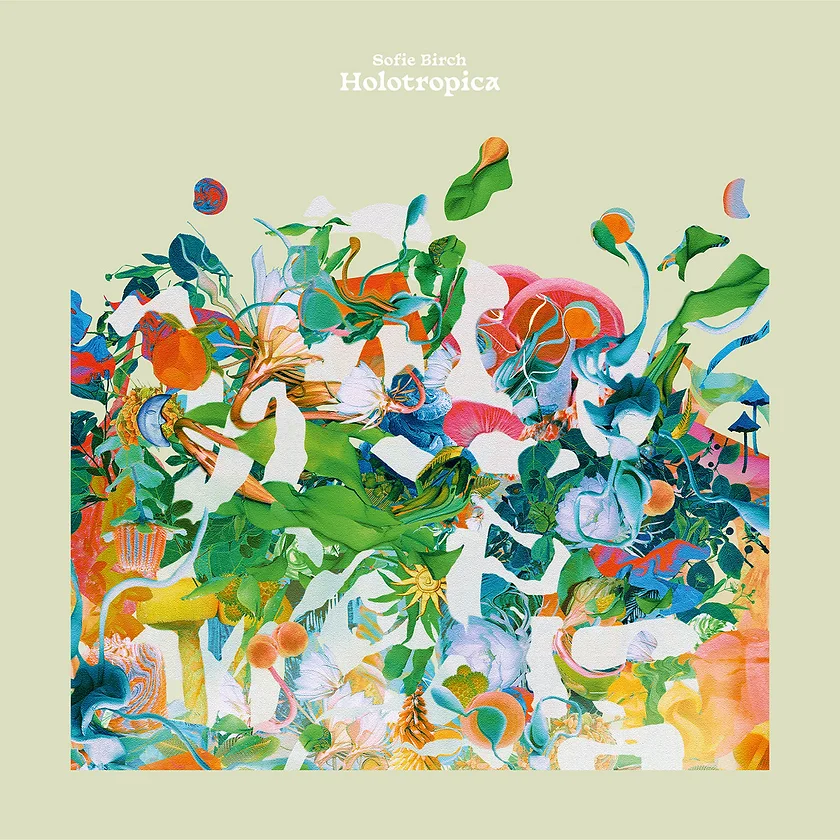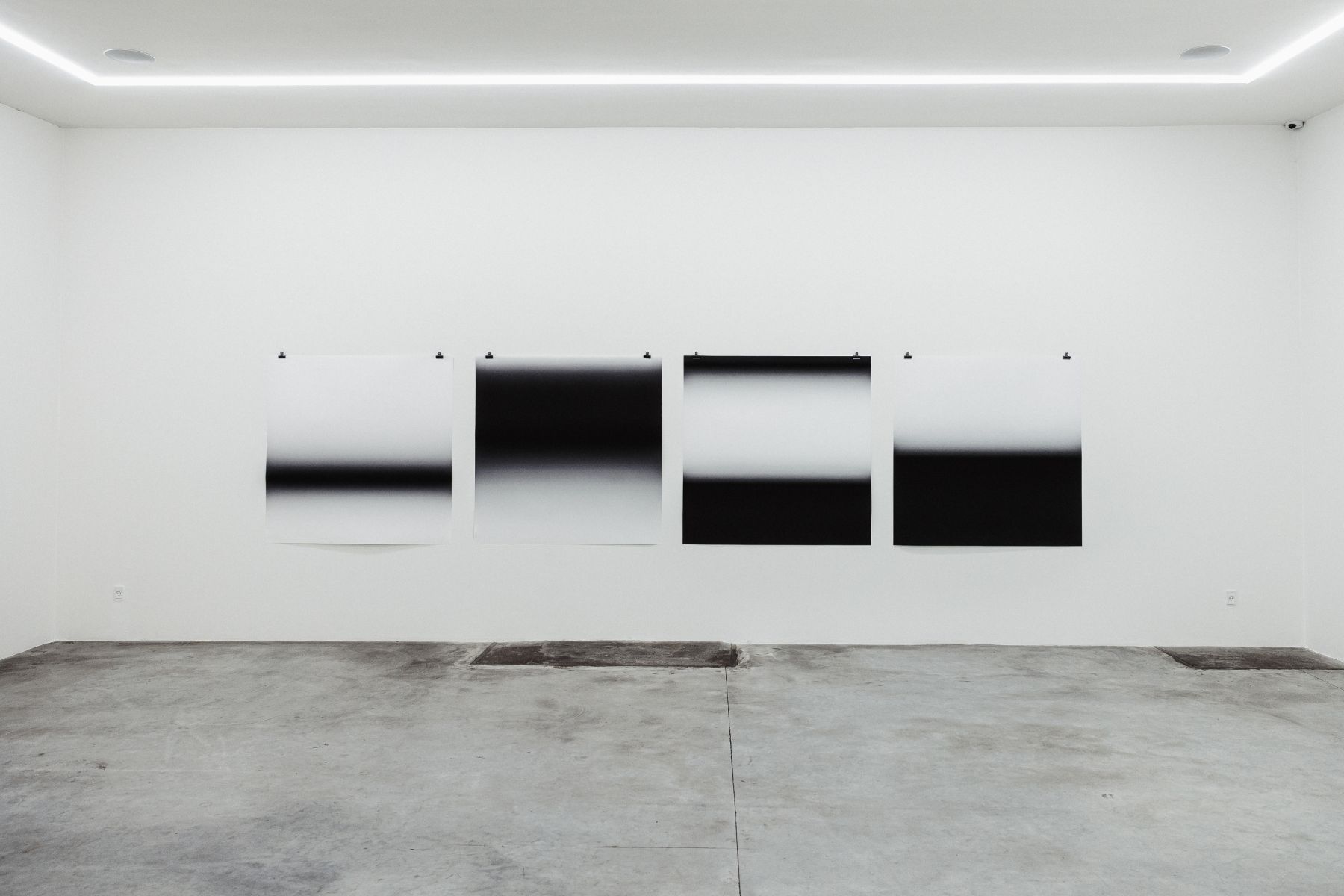Text by Christopher Michael

Music is a uniquely elastic, ever-expanding art form. It has the ability to help us heal, reorient our relationship to the earth, and call us to action. Sofie Birch and Kasper Bjørke are two experimental musicians who seek to push these boundaries within contemporary music. Their work fluctuates between experiments with ambient sound, electronic dance music, and contemporary classical compositions. Despite their constantly evolving discographies, both Birch and Bjørke take a similar approach when beginning a new project, each seeking to expand their sonic horizons while experimenting with new sounds.
Birch and Bjørke recently came together to collaborate for Kasper Bjørke Quartet’s latest release, Mother. The album was born out of Bjørke’s interest in creating work about the climate crisis but in an indirect way. Bjørke drew inspiration for the compositions from the earth’s 4.5 billion years of evolutionary history, from prehistoric times to our current moment.
The result is an album that feels both challenging and immensely healing, calling to question our relationship with the natural world. Birch, whose work stems from a belief in the healing quality of sound, was an ideal collaborator for the ambitious project. She can be heard on the tracks ‘Formation’ and ‘Miocene’, and her unique approach adds a distinct touch to each composition. Over the album’s hour and twenty-minute duration, listeners are treated to a uniquely meditative and immersive sonic experience.
Though both musicians have developed their own sound and work in their own distinct ways, their creative sensibilities and inspirations are very similar. Each artist is concerned with their relationship to nature, and the natural world influences them. Each artist also has a healthy scepticism towards new technologies, both finding significance in taking deliberate steps back from being around so many screens. To put it simply, both Birch and Bjørke place importance on self-reflection, deeply considering their relationship to their immediate environments and the role that sound can play in shaping that.
This reflexive quality is shared in their music and is born out of a creative practice that encapsulates their daily lives. In the following conversation, they discuss their creative processes and what draws them to creating such idiosyncratic music. Together they explore some of the influences that shape their works and how they take inspiration from the world around them.


Kasper: This past week, I have been listening to a lot of your recent collaborative album “Languoria” with Antonina Nowacka. How was the creative process while recording this album? It feels like it was a very warm, inspiring and free-flowing process.
Sofie: It surely was! One of the things that Antonina and I have in common is our belief in immediate creative output, and we try not to have any expectations and go with the quality of the output that we create together without chasing anything specific. We felt very free and went with what happened in the studio while recording. We are both singing and playing synthesisers, which turned out to be a very collaborative effort.
Kasper: So it was primarily live, where you didn’t edit the recordings much?
Sofie: Yeah, we didn’t edit much. The recordings were quite simple, and our live shows will also reflect that one melodic figure and our vocals, so it will be true to the album sound in that sense.
Kasper: That’s also how I have worked on both Quartet albums. My friend Claus (aka Langstrakt) and I spent weeks in his studio doing live recordings of melodic figures we felt good about, using analogue synthesizers and a step sequencer and adding analogue effects. Afterwards, I didn’t edit much except the intro and outro… and then I started adding additional layers with other musicians on top, giving them some pointers and specific ideas for what they could do but still giving them complete creative freedom to pursue what they felt like.
Sofie: How is your experience working with rhythmic, danceable music and then the Quartet ambient project? Do they correspond, or do they feel far apart?
Kasper: The two genres seem very far apart when producing in the studio… the approach is very different because dance music is locked to a tempo in my DAW, and I use a lot of midis when programming the drums – but when recording for the Quartet project, the computer is only a recording device, everything is analogue, and there are not really any beats… there might be an arpeggio from a synthesizer that drives the music forward but the sense of time and grid is much less present. However, once you start to think about how the two correspond on an emotional level…
Dance music, at its core, is an extrovert thing and can be used as a form of escapism because it can make you forget everything around you and your daily struggles; I think many ravers use clubbing for just that… But at the same time, there is a meditative layer to dancing when it becomes a state of mind, and you are in a nightclub surrounded by other dancers moving to the same beat… and then it suddenly becomes an introvert experience that can even become self-healing to some extend… much like ambient which, in its original form at least, is about meditation and obtaining an enlightened experience… Moving on, what is your compositional aims and main interests within your practice at the moment – and what are you working on next?
Sofie: I definitely want to discover using my own vocals a lot more in my music, especially after working with Antonina and on my latest live shows, where I have also felt a lot of energy from singing too. So, my plan is to go into work mode and focus more on writing song-structured compositions, perhaps even with beats… I didn’t start yet, but that’s what I feel like currently. Right now, I also feel like I want to investigate something besides ambient on my next releases.
Kasper: I totally relate to your thoughts on this… Besides that, I have an outlet with club/beat-driven productions as a solo artist; the Quartet project has always been something else for me than ambient in the classic sense… the ambient genre in its original realm can feel quite generic at times, so I am trying to approach it by making it a project where I collaborate with both classically trained and other musicians, using only analogue instruments to get out of the grid of the computer and use it as a recording device. I feel like too many ambient sounds are the same, and almost as if it was created just for a meditation playlist on Spotify.
Sofie: What are the thoughts behind the theme of Mother? Does it relate to something in your personal life?
Kasper: Even before I started recording the first synthesizers for the album together with Claus in the summer of 2020, I had the ambition to make an album with the climate crisis as the subject matter – but in a not too direct way… I have a feeling that most people just shut off when they read the headlines in the news; it has become too much for many people to take in… So, through instrumental music within the neo-classical ambient realm and with the vital help from some very talented musicians, I set out to interpret the evolution of the earth from its formation 4,5 billion years ago, through the beginning of life and up until now where the human species has pushed our planet and natural resources to the edge and beyond…while also suggesting a final chapter which simultaneously is a new beginning for Earth and possibly mankind as well.
The theme relates to my personal life in the sense that my family and I have been trying to lower our carbon footprint for the past 7-8 years in every way possible. It is something we think about every day, affecting most things we do, what we eat, how we consume, travel etc. We haven’t been on an airplane to go on vacation for five years, and so far, I haven’t been on a plane for more than three years to play a DJ gig… So, it definitely comes with some sacrifices along the way, but we decided that we want to be able to tell our children when they are older that we changed as much as we could once we became parents and that we tried the best we could… So in that sense, Mother is a sort of testament to earth, all its beauty and the crisis we are facing … And hopefully, when some people listen to the sensibility of the music and understand its meaning, maybe they will start to think more about these things too in their daily lives…
Kasper: Speaking of sensibility, I really like how you implement the healing aspect from ambient music into your music and performances. Do you see yourself working deeper with this aspect – maybe even outside your work as a musician?
Sofie: Yes and no… it comes in waves, and I am definitely currently in a phase where I am trying to get to the core of my work as an artist and, in that sense, not see myself as someone who works with sound therapy or, for example, theatre music… I want to focus on working on my next album and see where that takes me…
Kasper: I totally understand, and it makes sense to leave it aside for now and maybe reconnect with it later in your career if you feel like it at the time… During the recording of the first Quartet album, The Fifty Eleven Project, I was very inspired by how music has the ability to heal and soothe the mind from anxiety, something I also experienced firsthand while recording the album – and I found it genuinely rewarding when people approached me and told me that the album had helped them through their personal difficult times. When music can do that, that’s really special, I think.
Sofie: Yes, I have had the same experience. And I feel this is something very unique about this genre that I found myself really in need of on a personal level but also when meeting my audience after my shows, for example.
Kasper: What’s your relationship with technology these days? Is anything that has caught your eye recently?
Sofie: I am very excited about taking a step back from using technology these days. My partner and I have recently decided not to use our phones in front of our daughter. And this has been a total game changer. We saw how much our phones affected her; she was gravitating towards them – and we realized it was because we were so caught up in them that she became that too.
Kasper: Yeah! We never had an iPad at our house for the same reason – and our son is turning eight and our daughter is four. I am quite pleased with the fact that we managed to take it this far without – we always felt like it was too much when small children have access to that kind of technology. I realize that we won’t be able to keep them from it forever – but I think we have done them a huge favour until now – and it is wonderful to see how long they can play on their own, building lego for hours or drawing or painting without asking for a device to play games or watch something. They, of course, get to watch kids’ shows on tv on weekends and sometimes after kindergarten and school before dinner. I loved watching animated films as a kid, and I think they can spark creativity and imagination too. But for example, Youtube is completely banned at our house for the kids too. I read an interview with the founder of Youtube; she doesn’t let her kids use it!
CLOT Magazine: What are you currently listening to, watching, and reading?
Sofie: I am reading “Dyreliv” by Auður Ava Ólafsdóttir, a very beautiful book about births, nature and Icelandic culture. I am listening to a lot to the wind at the moment. Playing so many live shows demands a form of silence and pause from music. I am watching absolutely nothing at the moment. But I recommend watching the horizon for a minimum of 10 minutes every day. Just gazing long distance. Like everybody else, I tend to only focus my sight on something right before my eyes on a screen, and I feel that something is lost when I forget to scout for far destinations.
Kasper: I mainly listen to jazz at home… Today I have been listening to the Floating Points and Pharoah Sanders album “Promises” that came out last year. I find such collaborations between artists from different genres very inspiring, and that’s also something I love to do myself when working on music… I am reading a book from 2009 called “The Vanishing Face of Gaia – A Final Warning” by James Lovelock. He was at the forefront of climate scientists trying to raise awareness about the climate crisis decades before it became everyday news. It is not exactly a cheerful read but definitely eye-opening. I am watching the new series “The Old Man” with Jeff Bridges on Disney+ … So good!
CLOT Magazine: How do you know each other? How did your collaboration come to happen?
Kasper: I reached out to Sofie last year as I really wanted to work with her on the new Quartet album. I had been listening to her music since her boyfriend, who I know, told me to check out her music some years ago. Today is actually the first time Sofie and I met in person because we worked remotely on the music.
CLOT Magazine: what was the creative process like during the collaboration? Any challenges?
Sofie: No challenges whatsoever from my side… But I heard from a friend we have in common that Kasper was quite surprised by how fast I was when I recorded my parts on the tracks, and Kasper found that a little annoying because it also turned out great, haha!
Kasper: Ahahaha, yeah, that’s true! I spend almost two years creating the album, and Sofie sends her stems after a day or two. I was like, “Wait, what has she ́s done already ?? And it sounds SO good!?”
CLOT Magazine: How did you complement each other’s work?
Kasper: I was specifically looking for Sofie to add some details to the two compositions, “Formation” and “Miocene”, and she definitely added an extra dimension to both pieces with her subtle synth roles… I had to do very little editing and mixing; it simply sounded great as soon as I added Sofie’s parts into my projects!






